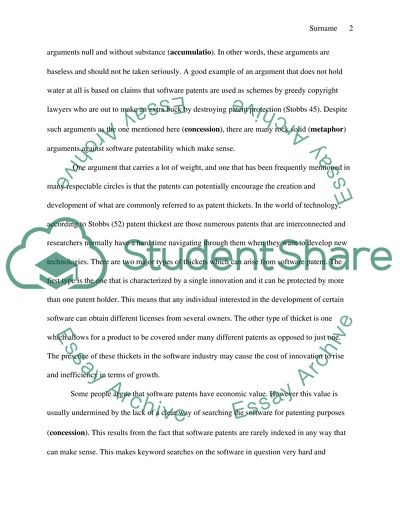Cite this document
(“Arguing against software patents Essay Example | Topics and Well Written Essays - 1500 words”, n.d.)
Retrieved from https://studentshare.org/english/1429697-arguing-against-software-patents
Retrieved from https://studentshare.org/english/1429697-arguing-against-software-patents
(Arguing Against Software Patents Essay Example | Topics and Well Written Essays - 1500 Words)
https://studentshare.org/english/1429697-arguing-against-software-patents.
https://studentshare.org/english/1429697-arguing-against-software-patents.
“Arguing Against Software Patents Essay Example | Topics and Well Written Essays - 1500 Words”, n.d. https://studentshare.org/english/1429697-arguing-against-software-patents.


